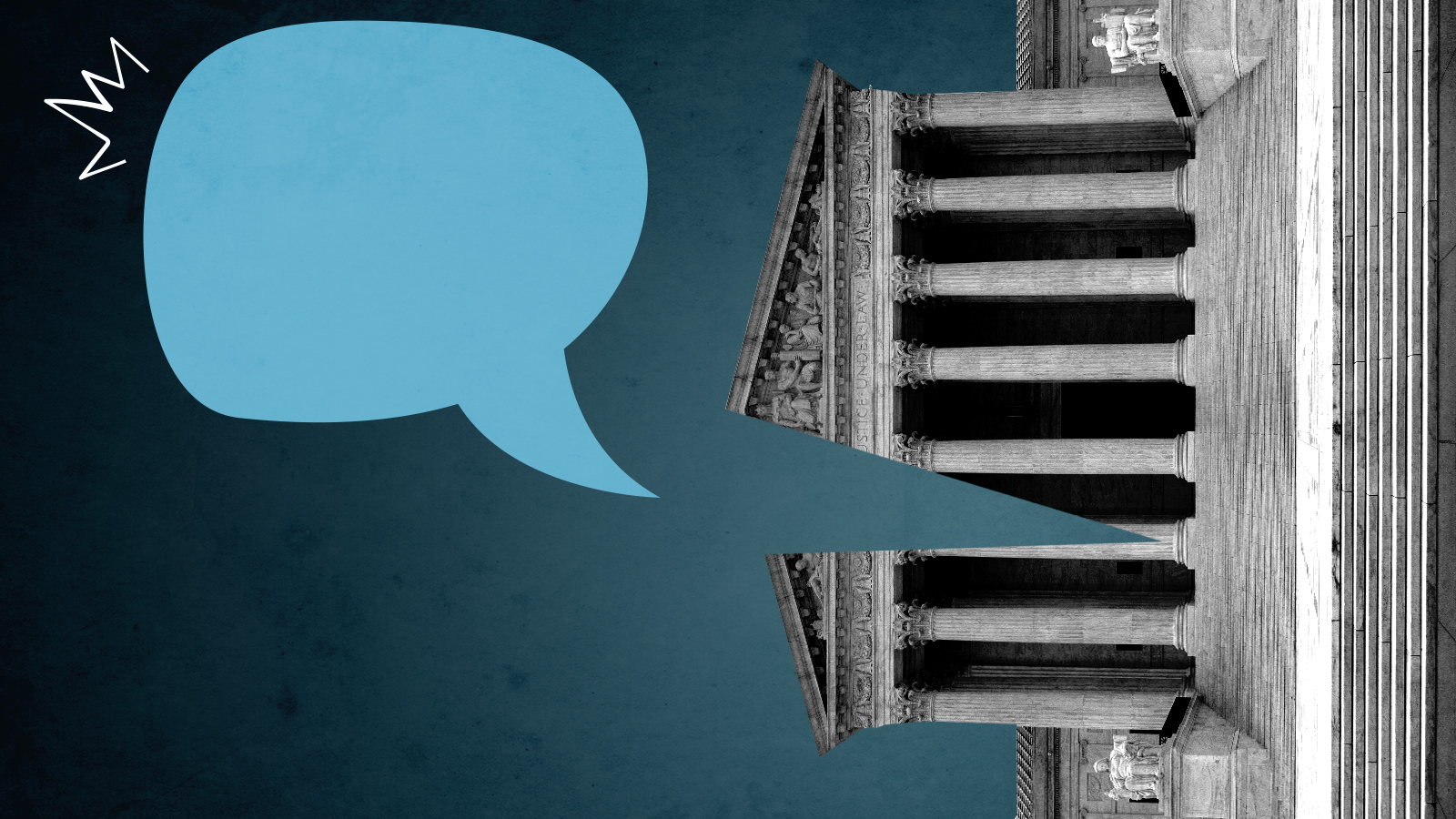The Supreme Court's unfashionable defense of free speech


A free daily email with the biggest news stories of the day – and the best features from TheWeek.com
You are now subscribed
Your newsletter sign-up was successful
Americans aren't quite sure how much they like free speech. The cultural left thinks that various standards of harm should be used to limit its scope. The political right is quite eager to use state power to curtail academic freedom on race and related issues. These days the ACLU often places other considerations ahead of an absolute defense of the First Amendment. And polling shows widespread ambivalence about allowing free and open debate and discussion, with young people especially dubious about its worth.
But, as we learned Wednesday morning with the Supreme Court's decision in Mahanoy Area School District v B.L., the high court (minus one of its members) is strongly committed to the unfashionable position that the First Amendment's speech protections should be strongly defended.
With only conservative justice Clarence Thomas dissenting, the Supreme Court ruled in the case that high school student Brandi Levy's profanity-infused Snapchat posts objecting to her school's varsity cheerleading squad were constitutionally protected speech and therefore that the school should not have been allowed to punish her for them. A three-judge panel of the Third Circuit had sided with the plaintiff, though it was divided on the rationale, with two of the judges protecting the posts because they were composed and sent while the student was off campus, and the other judge ruling more narrowly that the posts were protected only because they did not disrupt school activities.
The Week
Escape your echo chamber. Get the facts behind the news, plus analysis from multiple perspectives.

Sign up for The Week's Free Newsletters
From our morning news briefing to a weekly Good News Newsletter, get the best of The Week delivered directly to your inbox.
From our morning news briefing to a weekly Good News Newsletter, get the best of The Week delivered directly to your inbox.
The court's majority decision by Stephen Breyer conceded something to both Third Circuit arguments while strongly supporting the student's free speech rights. And that is what places the Supreme Court so out of step with current trends. Thomas' dissent pointed out that schools "historically could discipline students in circumstances like those presented here," and he was right about that. This is something new. Or rather, it's just the latest sign that the Roberts court is firmly committed to an especially strong defense of free speech.
Fashionable or not, that's something that civil libertarians of all stripes should cheer.
A free daily email with the biggest news stories of the day – and the best features from TheWeek.com
Damon Linker is a senior correspondent at TheWeek.com. He is also a former contributing editor at The New Republic and the author of The Theocons and The Religious Test.
-
 Bonfire of the Murdochs: an ‘utterly gripping’ book
Bonfire of the Murdochs: an ‘utterly gripping’ bookThe Week Recommends Gabriel Sherman examines Rupert Murdoch’s ‘war of succession’ over his media empire
-
 Gwen John: Strange Beauties – a ‘superb’ retrospective
Gwen John: Strange Beauties – a ‘superb’ retrospectiveThe Week Recommends ‘Daunting’ show at the National Museum Cardiff plunges viewers into the Welsh artist’s ‘spiritual, austere existence’
-
 Should the EU and UK join Trump’s board of peace?
Should the EU and UK join Trump’s board of peace?Today's Big Question After rushing to praise the initiative European leaders are now alarmed
-
 Big-time money squabbles: the conflict over California’s proposed billionaire tax
Big-time money squabbles: the conflict over California’s proposed billionaire taxTalking Points Californians worth more than $1.1 billion would pay a one-time 5% tax
-
 Supreme Court upholds California gerrymander
Supreme Court upholds California gerrymanderSpeed Read The emergency docket order had no dissents from the court
-
 Did Alex Pretti’s killing open a GOP rift on guns?
Did Alex Pretti’s killing open a GOP rift on guns?Talking Points Second Amendment groups push back on the White House narrative
-
 Washington grapples with ICE’s growing footprint — and future
Washington grapples with ICE’s growing footprint — and futureTALKING POINTS The deadly provocations of federal officers in Minnesota have put ICE back in the national spotlight
-
 Trump’s Greenland ambitions push NATO to the edge
Trump’s Greenland ambitions push NATO to the edgeTalking Points The military alliance is facing its worst-ever crisis
-
 Why is Trump threatening defense firms?
Why is Trump threatening defense firms?Talking Points CEO pay and stock buybacks will be restricted
-
 The billionaires’ wealth tax: a catastrophe for California?
The billionaires’ wealth tax: a catastrophe for California?Talking Point Peter Thiel and Larry Page preparing to change state residency
-
 How robust is the rule of law in the US?
How robust is the rule of law in the US?TODAY’S BIG QUESTION John Roberts says the Constitution is ‘unshaken,’ but tensions loom at the Supreme Court
